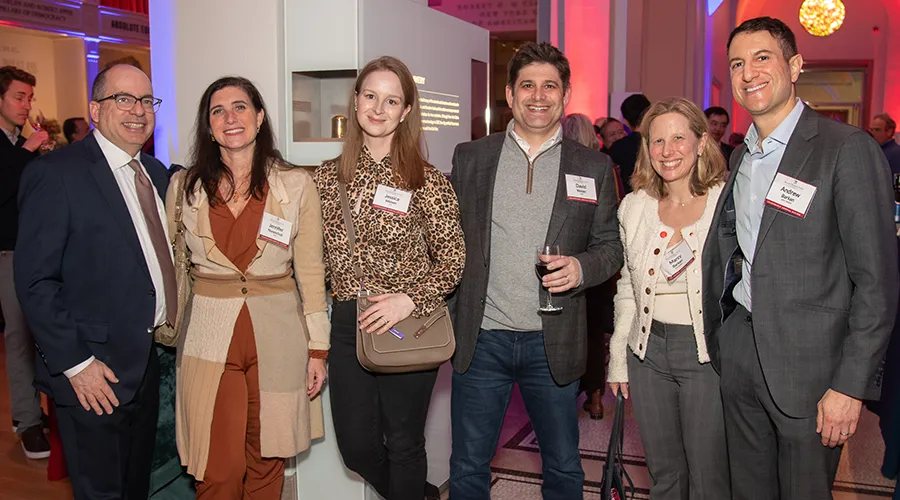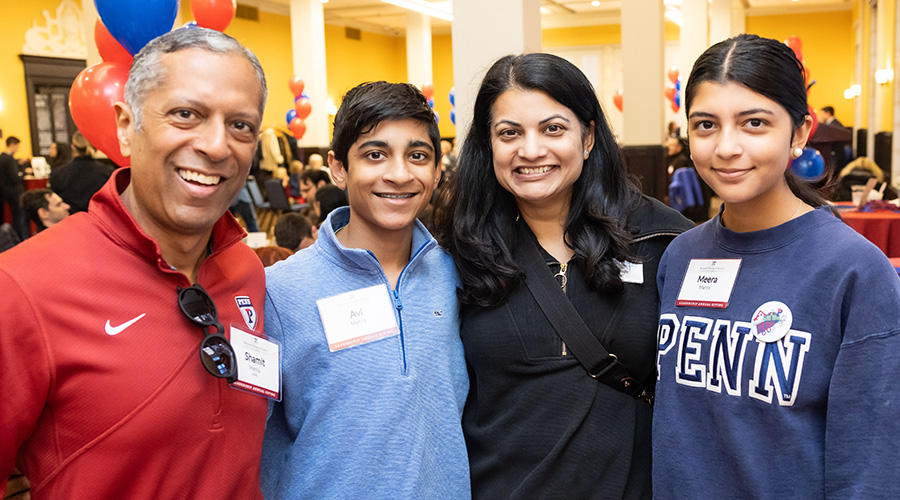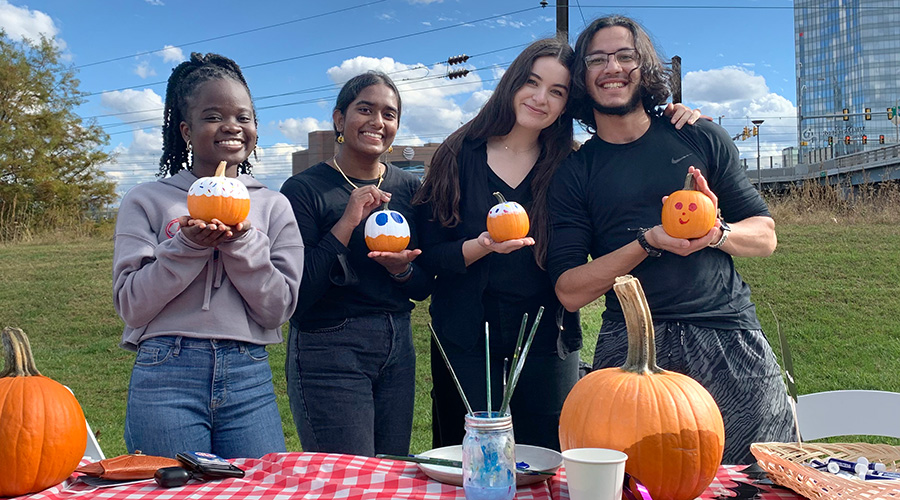Sharing the exciting work happening at Penn with alumni, parents, and friends throughout the world is a priority for Interim President J. Larry Jameson.
Showing Up for Penn in London
A capacity audience attends academic symposium
Shortly after challenging the graduating Class of 2024 to “keep reinventing, learning, and engaging,” he brought that same spirit to the Penn community in London. He met with leadership volunteers from the region and welcomed approximately 200 attendees to an academic symposium aptly titled Frontiers of Knowledge and Discovery: Leading in a Changing World.
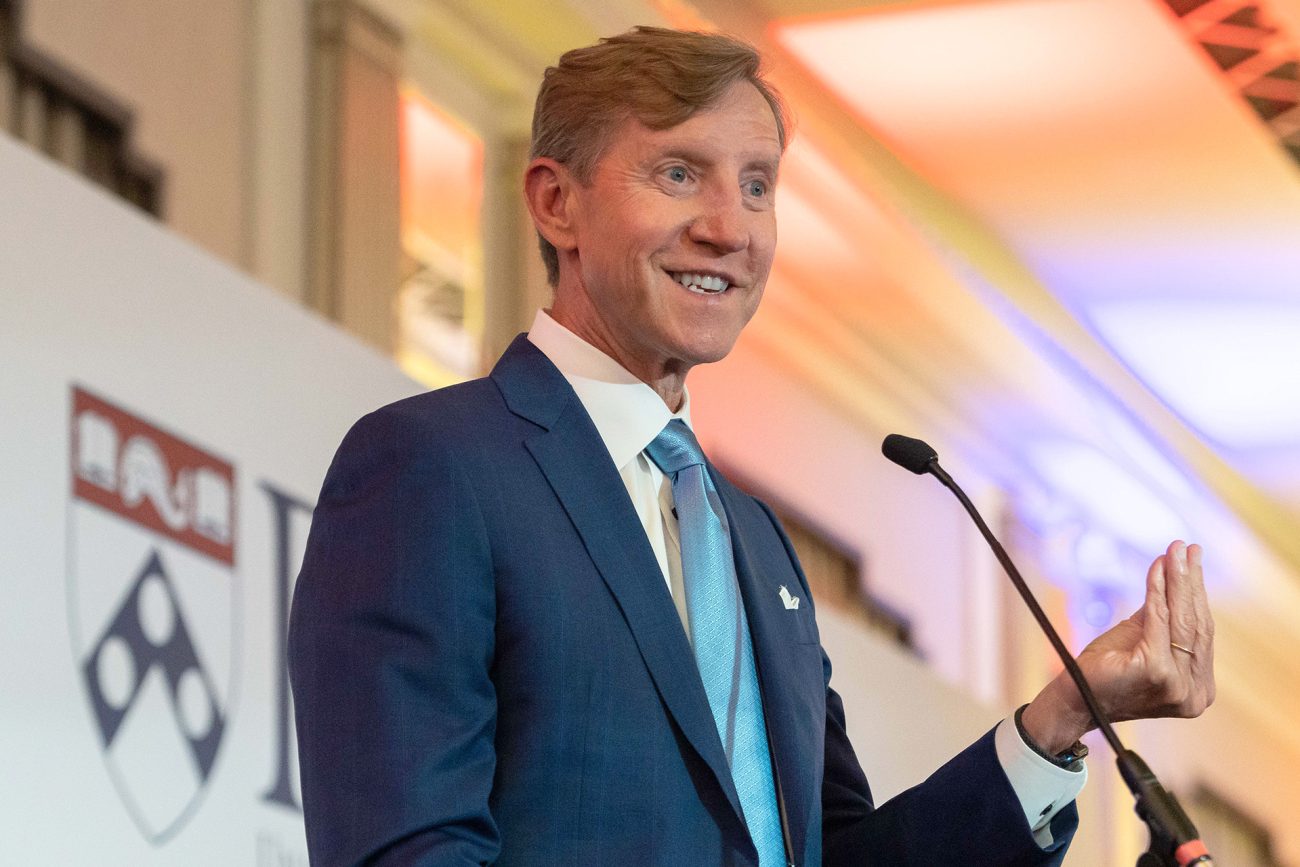
“Our faculty speakers personify the subtitle of this symposium: Leading in a Changing World,” said Jameson. “In their work, they overcome immense challenges and find incredible solutions. But each win along the way serves as a starting block, propelling them to what comes next. Their focus is always on a frontier just barely visible on the horizon. They serve our future by creating it.”
Those present heard from faculty at the height of their respective fields representing Penn Medicine, Penn Engineering, and the Wharton School. The three sessions featured conversations about breakthroughs in medical treatments, the intersection of data science and medical innovation, and the ubiquity and impact of new technologies.
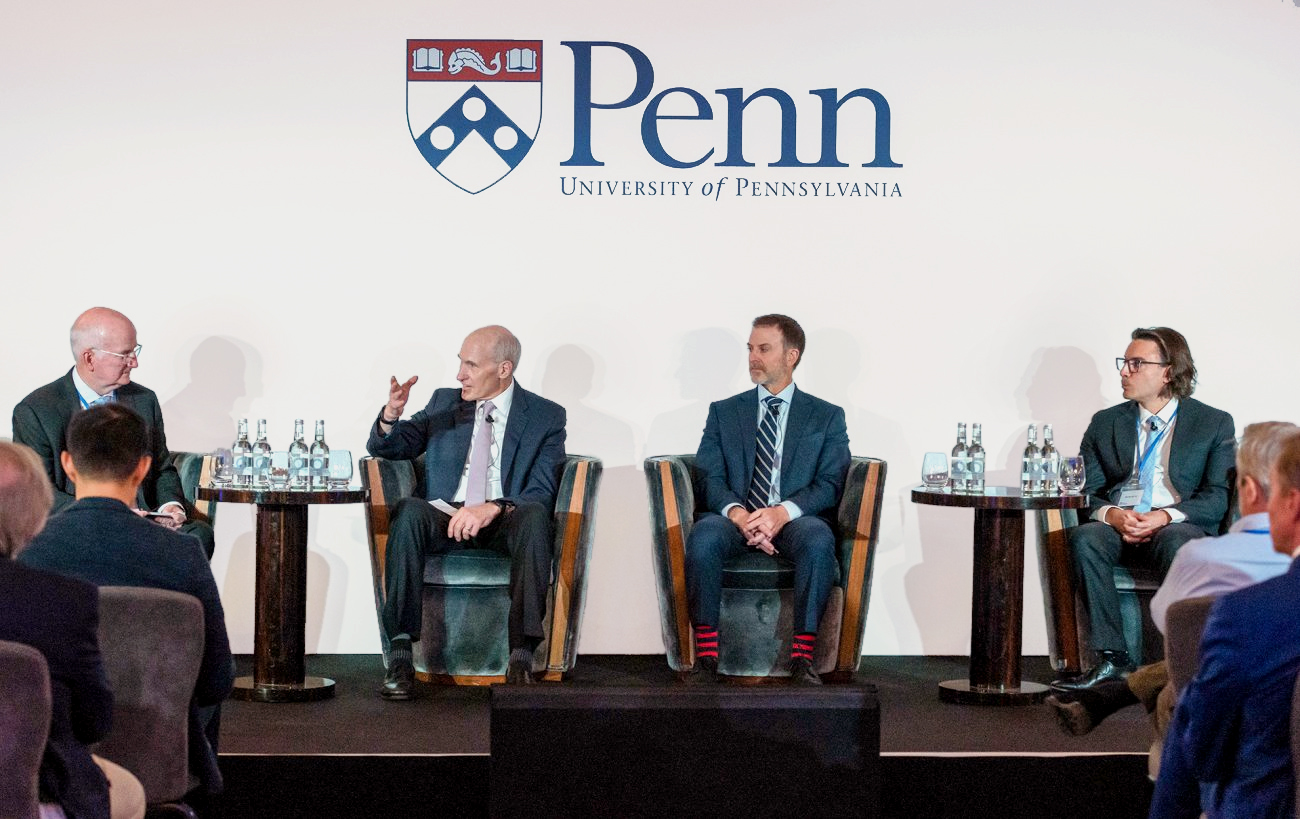
The Genesis and Trajectory of Breakthroughs
Kevin Mahoney, CEO of the University of Pennsylvania Health System, moderated the first panel on the genesis of breakthroughs. “When our faculty explain how landmark achievements like new fields of science or first-in-class cancer therapies come about, they never fail to emphasize how collaboration turns expertise into progress,” he said. “Hearing Mike Mitchell, John Wherry, and Carl June speak made plain how our brilliant, interconnected Penn faculty work together on one campus with results that are changing our world.”
During a wide-ranging conversation, the panelists held a “crystal ball” to the next ten years of that changed world. June—recent winner of the prestigious Breakthrough Prize—painted a picture of life-saving CAR-T therapy brought from a single pediatric patient named Emily Whitehead (now a rising sophomore at Penn) to more than 34,000 cancer patients and counting, with increasingly cost-effective and efficient manufacturing in the future. Wherry predicted that current advances in immune health, which harnesses the body’s own immune system to fight disease, will ultimately make it not only part of standard patient care—but a predictive tool that can assess a patient’s individual immune system to diagnose and prevent disease. And Mitchell emphasized the potential of RNA therapy to one day treat the greatest challenges in health, from cancer to cardiovascular disease, describing his work with lipid nanoparticles that deliver therapeutics, including the COVID-19 vaccine, directly into cells.
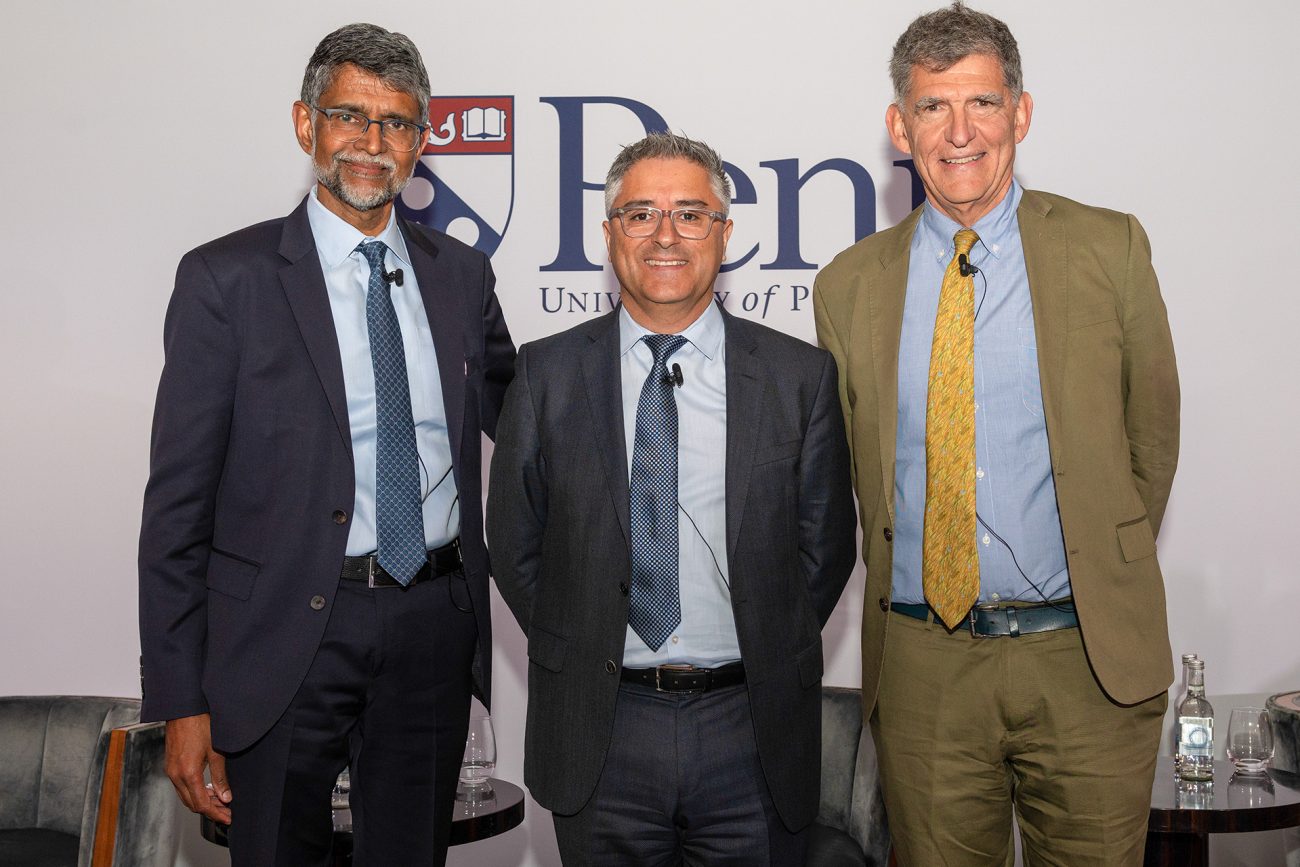
Data Science + Medical Innovation
Vijay Kumar, the Nemirovsky Family Dean of Penn Engineering, shared Mahoney’s perspective on collaboration—with a twist. “Non-engineers can be mystified, if not intimidated, by the complexities of the work we do,” he explained. “When a faculty member breaks down a project and talks it through, step by step, the engineering concepts become so much more understandable and relatable.” Kumar moderated a session with Dan Rader and René Vidal that focused on the increasing and powerful synergies among data science and AI, medical research, and clinical practice.
Their conversation focused, at times, on what patients can expect in the not-too-distant future. Rader predicted that charting individual genomic profiles and analyzing the resulting information about genetic proclivities for certain conditions will become a routine element of patient care. Vidal described the challenge and potential of training computers to “see”—and how computer vision differs so dramatically from other types of artificial intelligence.
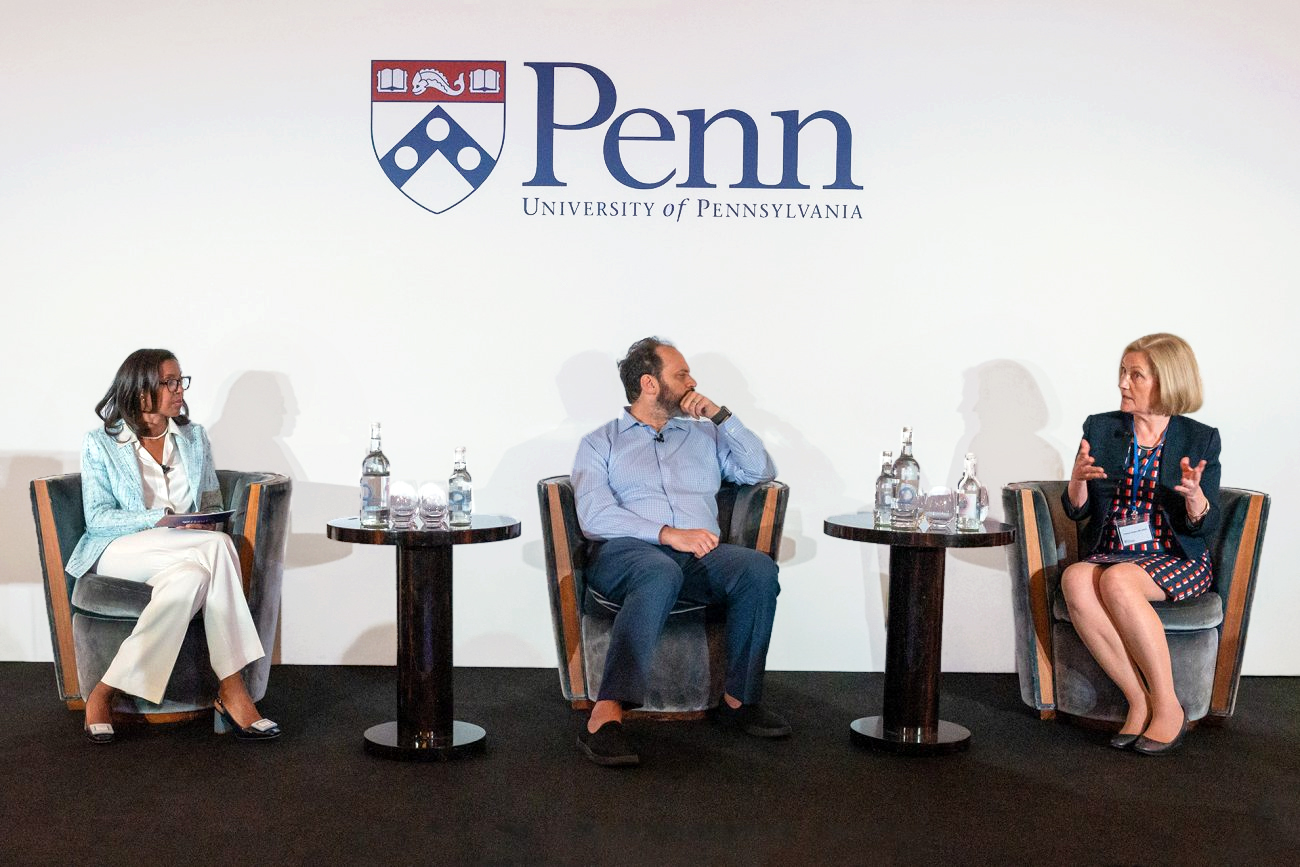
The Ubiquity and Impact of New Technologies
The opportunity to engage one of Wharton’s highest-profile professors and AI expert, Ethan Mollick, in conversation with Frances Jensen, chair of Penn Medicine’s department of Neurology, was “a fascinating combination of mutual expertise,” according to Erika James, Dean and Reliance Professor of Management and Private Enterprise at Wharton. “Ethan has become the go-to source if you want to understand how artificial intelligence can be applied in your work and life, and Frances is legendary for her understanding of the brain and how it develops. They brought together different perspectives on one of the timeliest and most salient topics of our time.”
In a lively and engaging exchange, Mollick and Jensen painted a realistic picture of how the pervasiveness and addictive nature of technology is changing how our brains are “wired,” and what the rapid deployment of AI may mean for how we learn, teach, work, and interact.
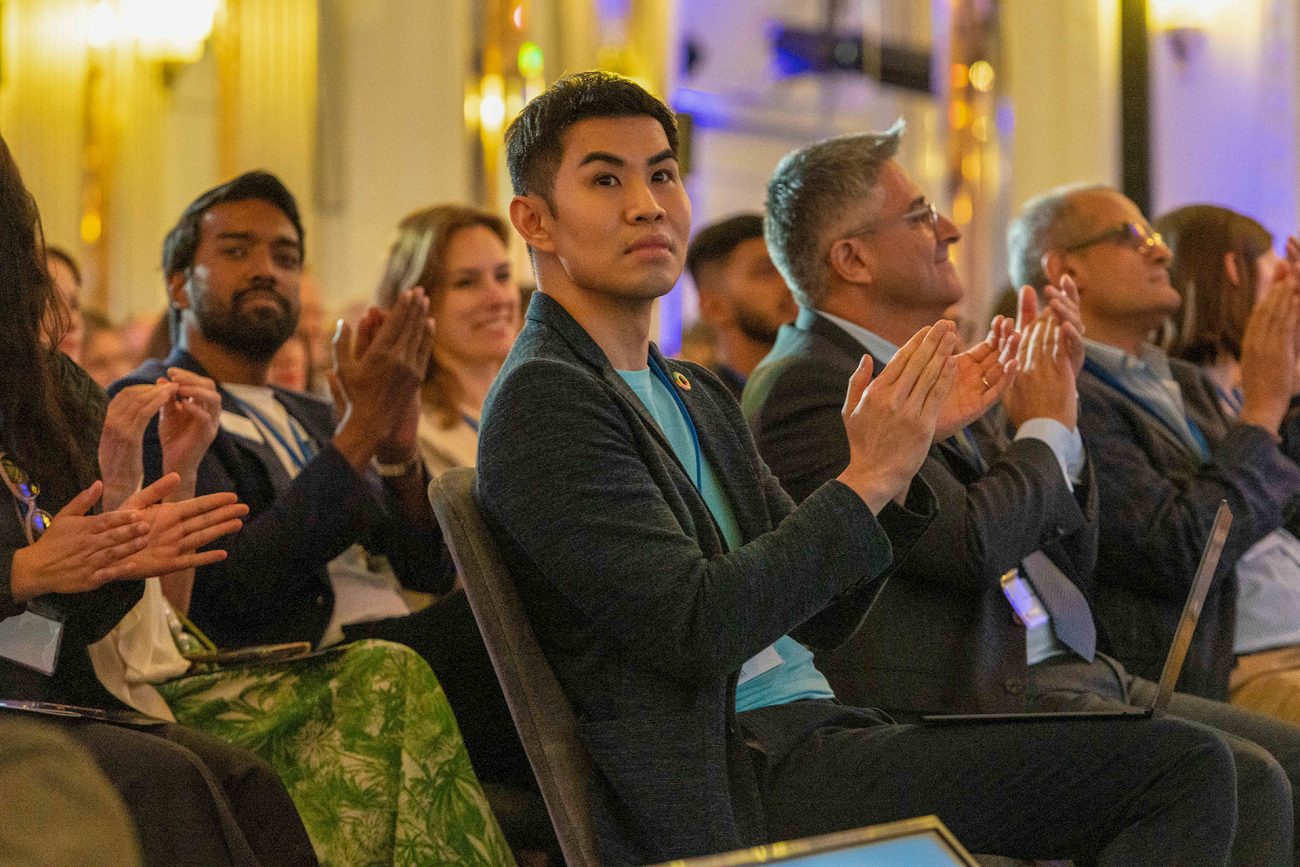
For Kenneth Kwok, C’04, W’04, the afternoon was a perfect example of how Penn shares the essence of the University with its international community. “Many people in the audience don’t get back to Philadelphia very often, if ever,” he said. “For them—and for all of us—today was a great way to connect directly with faculty doing exciting and meaningful work, and to be reminded that learning is a lifelong process.”
At the close of the program, Jameson remarked that “I never cease to be awed by the boundary-breaking work happening on Penn’s campus, and by the individuals leading the charge.” He also thanked the volunteer leaders who serve as Penn’s ambassadors and all those who came to hear about the continued excellence of Penn’s long-term educational, research, and clinical missions, as we “look ahead with energy and optimism.”


